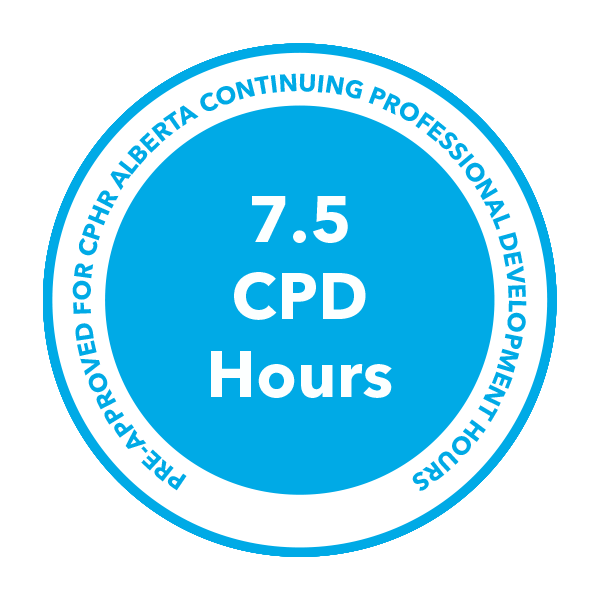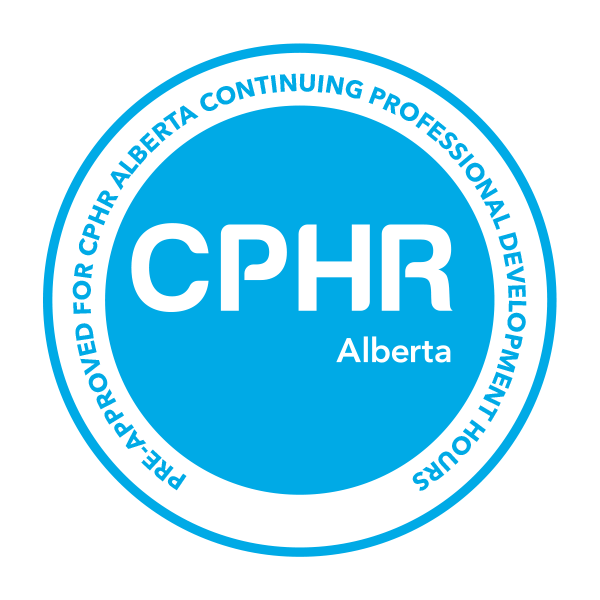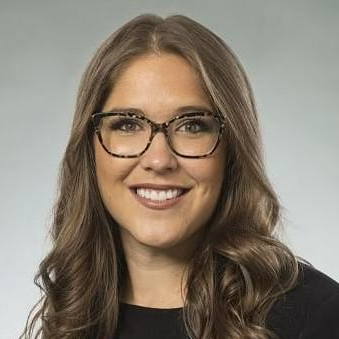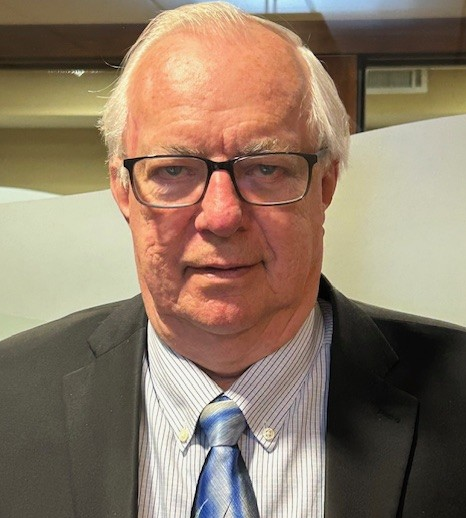We would like to thank Field Law for their generous sponsorship of the 42nd Annual Labour Arbitration and Policy Conference presented by Lancaster House.
Calgary Labour Arbitration and Policy Conference
Conference Co-Chairs
Conference Advisory Committee
David Lardner
Union Representative, Disputes and Arbitration
Alberta Union of Provincial Employees (AUPE)
Erin Ludwig
Associate General Counsel
Labour and Employment Legal and Privacy
Alberta Health Services (AHS)
Thursday, June 13, 2024
Workshop
*Workshops sold separately from stand-alone conference.
Breakfast: 8:00 a.m. – 9:00 a.m. M.T.
Concurrent Workshops:
(The schedule below will run concurrently for all three workshops until 4pm)
Dr. Charl Els
Psychiatrist, Addiction Specialist, and Occupational Physician
Clinical Professor
Department of Psychiatry and Department of Medicine
University of Alberta
Challenges often arise in accommodating employees with conditions that cannot be identified by a clear diagnostic test or that are not yet well-understood within the medical community. In this session, expert panelists will examine key legal principles and best practices for accommodating employees with these conditions. Speakers will address:
- Examples of common medical conditions that elude diagnosis, or that are considered “diagnoses of exclusion” (including “long COVID”);
- Legal limits on the type and extent of medical information that employers can request from employees;
- How to effectively formulate requests for medical information where an employee’s condition cannot be confirmed using a clinician’s diagnostic test;
- How to respond when there is a lack of available medical practitioners with the requisite knowledge or expertise to assess and attest to an employee’s condition;
- How to approach employees/union members about needed information with sensitivity;
- How stereotypes and stigmas associated with such medical conditions can contribute to the challenge of providing accommodation;
- Types of accommodations that may be of assistance to an employee suffering from persistent or chronic symptoms;
- Whether an employer can discipline or dismiss an employee who is frequently absent, underperforming, or exhibiting atypical workplace behaviours but who asserts that it is due to an as-yet undiagnosed disability; and
- Understanding when undue hardship has been established and the duty to accommodate is at an end.
David Lardner
Union Representative, Disputes and Arbitration
Alberta Union of Provincial Employees (AUPE)
An understanding of the principles of contract interpretation is indispensable for anyone involved in the negotiation or administration of a collective agreement, from front-line managers and union representatives to advocates in the arbitration process. The ground rules of collective agreement interpretation have seen a notable shift in recent years. While the traditional techniques of reading a collective agreement, such asthe “plain meaning” rule, still play a central role, arbitrators increasingly utilizeuse a more “contextual” approach that takes into account relevant background in order to determine the parties’ intent. In this workshop, experienced counsel will equip participants with the knowledge they need to deal effectively with the wide array of interpretation disputes that arise in a unionized setting.
- What are the most commonly applied rules of collective agreement interpretation?
- What is the difference between the “plain meaning” approach and a purposive approach?
- When can evidence of past practice or negotiating history be used as an aid to interpretation?
- How do arbitrators reconcile negotiated contract language and the contrary provisions of employment-related statutes, e.g. human rights and employment standards legislation?
- What is “contextual evidence,” as set out by the Supreme Court of Canada in the Sattva case? In what circumstances can such evidence be admitted and relied upon to shed light on the meaning of a disputed clause?
- How has the use of the “contextual” approach changed the way in which established rules of interpretation are applied?
- What are the limits of contextual evidence as an interpretive tool?
- How have arbitrators in recent cases utilized contextual evidence to resolve disputes about the proper interpretation and application of a collective agreement provision?
Accommodating employees with disabilities that impair their judgment, perception, and ability to cooperate can be challenging. Unfortunately, mental health disabilities, such as mood disorders, can often impact the very abilities necessary for an individual to engage in the accommodation process.
Working through interactive exercises and realistic scenarios with the guidance of experts, participants will develop the knowledge and skills necessary to:
- develop an understanding of how common disabilities may impede a worker’s ability to participate in the accommodation process;
- demonstrate effective communication skills when interacting with resistant or uncooperative employees;
- understand responsibilities surrounding the duty to inquire, obtaining medical records, and related privacy legislation;
- comply with union and management legal obligations when workers are unwilling or unable to participate in the accommodation process; and
- identify when the threshold of undue hardship is reached.
| Workshop Schedule |
| Introductory remarks: 9:00 a.m. – 9:10 a.m. M.T. |
| Workshop: 9:10 a.m. – 10:25 a.m. M.T. |
| Morning break: 10:25 a.m. – 10:40 a.m. M.T. |
| Workshop: 10:40 a.m. – 11:55 a.m. M.T. |
| Lunch: 11:55 a.m. – 1:05 p.m. M.T. |
| Workshop: 1:05 p.m. – 2:20 p.m. M.T. |
| Afternoon Break: 2:20 p.m. – 2:35 p.m. M.T. |
| Workshop: 2:35 p.m – 4:00 p.m M.T. |
| Cocktail networking reception: 5:00 p.m – 7:00 p.m M.T. |
| Co-chair remarks and introduction of keynote: 7:00 p.m – 7:05 p.m M.T. |
Kelly Williams-Whitt
Arbitrator/Mediator
Professor, Human Resources and Labour Relations
Dean, Faculty of Business, Communication Studies and Aviation, Mount Royal University
Given the lack of Canadian arbitration decisions on the use of artificial intelligence (“AI”) to select and manage employees, this session will provide employers and unions with the best available insight into how grievances against such uses of AI would be mounted, defended, and decided. Experienced union and management counsel will join an arbitrator to discuss a union challenge to algorithmic management drawn from US caselaw and a challenge to a program designed to vet job candidates. Specific issues to be addressed include:
- What principles in existing arbitral jurisprudence or legislative provisions could be invoked to challenge an employer’s use of algorithmic management (i.e. use of AI and data to manage employees)?
- Can employers rely on management rights to justify the use of AI to evaluate employee performance and manage employees?
- What arguments for and against the use of algorithmic management would arbitrators in Alberta find most compelling?
- What legal concerns are raised when an employer uses AI to assess candidates’ suitability for positions?
- What privacy concerns are raised by using AI to evaluate job applicants based on their internet activity?
Friday, June 14, 2024
Breakfast: 8:00 a.m. – 8:45 a.m. M.T.
In this session, experts will examine recent significant developments in federal and provincial labour law. Panelists will address the latest cases on topics such as:
- discrimination, harassment, and accommodation;
- government intervention in collective bargaining;
- privacy;
- discipline;
- contracting out, statutory freeze issues, and illegal strikes; and
- key issues at interest arbitration, including inflation, recruitment and retention, minimum wage increases.
Panelists will also discuss recent legislative initiatives, such as:
- Federal legislation to ban the use of strike replacement workers;
- The recent report of the Employment Equity Act Review Task Force and related changes to the Act;
- Limiting the importation of goods involving the use of forced labour and child labour in international supply chains; and
- The impact of Alberta’s recently introduced Public Sector Employer Amendment Act, 2023.
Final selection of topics will take place in the weeks leading up to the conference, ensuring coverage of the latest and most important developments.
Morning break: 10:00 a.m. – 10:15 a.m. M.T.
Tensions sometimes arise between employee free speech and an employer’s duty to ensure a safe and respectful workplace. How can these arguably competing rights and obligations be balanced? In this session, a panel of experts will address these questions:
- What is the line between safeguarding employee free speech and ensuring a respectful and safe work environment? Do employees have the right to express their views on potentially controversial and/or political matters at work?
- Can employers discipline employees for private statements and/or expressions made outside the workplace?
- To what extent will arbitrators consider Charter rights and values such as freedom of expression in the context of off-duty conduct?
- What is the extent of a union’s duty to represent members who face work-related consequences for their potentially polarizing beliefs? When will a union’s decision not to represent a member constitute a breach of the duty of fair representation?
Break: 11:20 a.m. – 11:35 a.m. M.T.
Pick 1 of 3
Concurrent 1: Investigations under the Magnifying Glass: Examining current practices and recent caselaw
Concurrent 2: Disciplinary Dilemmas: When is coaching discipline? When is union representation required? When is there a right to remain silent?
Concurrent 3: Neurodiversity at Work: Strategies for creating and fostering inclusive workplaces
Lunch: 12:35 p.m. – 1:45 p.m. M.T.
Pick 1 of 3
Concurrent 1: Investigations under the Magnifying Glass: Examining current practices and recent caselaw
Concurrent 2: Disciplinary Dilemmas: When is coaching discipline? When is union representation required? When is there a right to remain silent?
Concurrent 3: Neurodiversity at Work: Strategies for creating and fostering inclusive workplaces
Afternoon break: 2:45 p.m. – 3:00 p.m. M.T.
In Alberta, workplace harassment is defined as “any single incident or repeated incidents of objectionable or unwelcome conduct, comment, bullying or action by a person that the person knows or ought reasonably to know will or would cause offence or humiliation to a worker, or adversely affects the worker’s health and safety.” In many instances conduct or comments will clearly meet this definition. In many instances impugned conduct or comments will clearly meet this definition, but in other cases debate may arise as to whether the alleged harasser ought reasonably to have known that certain comments or conduct would be unwelcome.
- Should a complainant’s subjective feelings of humiliation or offence be determinative of whether certain conduct constitutes harassment? If not, why not?
- What role does a complainant’s lived experience as someone of a particular gender, race, or ethnicity play in determining whether certain conduct should be reasonably seen to be offensive? How might a decision-maker’s unconscious bias interfere in the analysis of whether conduct could reasonably be seen to be offensive or humiliating?
- Does workplace culture play any role in determining whether conduct ought reasonably to have been known to be offensive?
- Is the analysis of whether conduct constitutes harassment affected by a friendship or previous romantic relationships between complainant and respondent? What about power imbalances or lack thereof?
- How is the reasonableness of management action assessed to determine whether or not it constitutes harassment?
Concurrent Sessions
Dev Chankasingh
Labour Arbitrator, Mediator, Workplace Investigator, Employment Adjudicator
Dev A. Chankasingh Professional Corporation
In this session, expert panelists will examine recent caselaw addressing workplace investigations and will explore key principles and best practices in conducting fair, adequate, and effective investigations into human rights-related allegations. The panel will address questions including:
- What lessons can be learned from recent cases as to what constitutes a fair and adequate investigation process? What procedural flaws have been found to render an investigation unfair or inadequate?
- When is retaining a third-party investigator necessary? What other alternatives are possible?
- Can the grounds for an investigation be expanded after the investigation has already been commenced – for example, if an investigation reveals issues of systemic discrimination?
- What are best practices for countering unconscious and implicit bias and otherwise ensuring stereotypes and discrimination do not impact the investigatory process? How should investigatory meetings be approached where the person being interviewed has or is suspected to have a disability?
- How much latitude do employers have to order investigations into off-duty conduct? May workplace investigators demand to examine employees’ personal devices, such as laptops or cellphones which employees use exclusively or primarily for personal purposes?
- How should employers and unions approach investigations into workplace conduct which may have a criminal element?
- What legal avenues are available to employees who wish to challenge what they believe to be an unfair or improper investigation into their human rights allegations?
Karen Thibault
Union Representative
Disputes and Arbitrations
Alberta Union of Provincial Employees (AUPE)
Rights and responsibilities differ when engaging in job “coaching” or performance management as opposed to imposing formal discipline. In this session, expert speakers will examine key issues pertaining to disciplinary processes, addressing questions such as:
- How can parties clearly differentiate job coaching and training, performance management, and discipline? When and to what extent can management take action to improve worker performance without amounting to a formal warning or disciplinary act?
- What circumstances trigger an employee’s right to union representation? How have arbitrators distinguished meetings or discussions which are merely “investigatory” or otherwise non-disciplinary from those which are disciplinary and attract procedural protections?
- Do employees have a right to remain silent in investigative meetings where they reasonably believe a disclosure may expose them to discipline? May employees be disciplined solely due to their decision to remain silent? When employees are or may be subject to criminal charges in relation to the factual circumstances underpinning an investigatory or disciplinary meeting, how can those employees protect themselves against self-incrimination?
- What ought an employer do to ensure fairness toward an employee in the course of a disciplinary meeting or process? Where an employer fails to follow procedural requirements in relation to a disciplinary meeting, will this impact an arbitrator’s willingness to uphold a disciplinary measure?
- Where a union representative participates in a disciplinary meeting, what is the scope of that representative’s role?
- How may an employee’s conduct during a disciplinary meeting impact an arbitrator’s assessment as to whether to uphold the discipline?
On a societal level, there is increasing recognition that neurodivergence is a strength, not a deficit, and building inclusive, neurodivergent workplaces makes a positive impact. In this panel, experts will examine how employers can effectively recruit, retain, and accommodate neurodivergent employees, and how unions can support their neurodivergent membership. Specifically, the panel will address the following:
- What does neurodivergence mean? What should workplace parties know about specific conditions such as Autism Spectrum Disorders (ASD), Attention-Deficit/Hyperactive Disorder (ADHD), and learning disabilities falling under the umbrella of neurodivergence? Do these conditions share any similarities? How might they affect an employee’s work performance?
- How can businesses benefit from hiring neurodivergent employees?
- What measures can employers put in place to effectively recruit neurodivergent employees? How can employers support/accommodate neurodivergent applicants throughout the recruitment process?
- Considering the emphasis on self-identification in the neurodiverse community, must employees who identify as neurodivergent provide evidence of a medical diagnosis to access initiatives designed to recruit diverse employees? How should employers respond to these disclosures when they occur?
- How do common stereotypes hinder the inclusion and accommodation of neurodivergent employees in the workplace? What can be done to guard against these stereotypes?
- What are the signs an employee may be struggling with work performance or workplace relationships because of a neurological difference such as ASD or ADHD? When does the employer have a duty to inquire as to whether the employee in question requires accommodation?
- What are some examples of appropriate and effective accommodations for neurodivergent employees?
- What accommodations should unions provide to neurodivergent members accessing union services and using union processes?
- What kind of medical information can employers request from employees seeking accommodation on the basis of neurodivergence? Can a detailed neuropsychological evaluation report be required? How often, if ever, should updated medical information be requested from a neurodivergent employee, who, by definition, has a lifelong condition?
CPD

This program has been approved by CPHR Alberta for 7.5 Continuing Professional Development hours.
- This program has been approved by CPHR Alberta for 7.5 Continuing Professional Development hours.
- The Calgary Labour Arbitration and Policy Conference has been approved by the Law Society of British Columbia for 7.5 Continuing Professional Development hours.

Each Pre-Conference Workshop has been approved by CPHR Alberta for 5.3 Continuing Professional Development hours.
- Each Pre-Conference Workshop has been approved by the Law Society of British Columbia for 5.3 Continuing Professional Development hours.














































